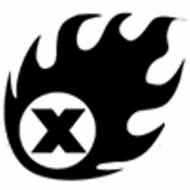An interview with Tesla’s lead designer this week has revealed why the company went with the color gold for its recently unveiled autonomous ride-hailing vehicle.
In a video shared on Tuesday, Tesla Chief Designer Franz von Holzhausen was hosted by Petersen Automotive Museum for an interview about the Cybercab, which is currently on display at the Los Angeles, California location. The longtime Tesla executive shares a handful of details about the two-seat autonomous vehicle in the video, including that it has no steering wheel, pedals, back window, and more.
Perhaps surprisingly, however, von Holzhausen also says that Tesla chose the color gold to represent the yellow of New York City’s classic yellow taxis—but with a more futuristic look.
“We chose the color gold, and it’s really a special color,” von Holzhausen says in the video. “It really reflects kind of a future version of the idea of a New York City yellow cab. It’s a future idea of that where we’ve taken that iconic yellow and created something more expressive, and more up to date.”
The video runs a little under 10 minutes, and von Holzhausen also shares a handful of other details, noting that you’ll someday be able to purchase or lease the car, for the amount of time you want, effectively revolutionizing transportation.
You can watch the full video with Tesla’s Franz von Holzhausen below, courtesy of the Petersen Automotive Museum below.
READ MORE ABOUT THE TESLA CYBERCAB: Tesla Cybercab to be showcased in multiple U.S. cities this weekend
Tesla Cybercab’s design: autonomy from charging to driving
As one Tesla engineer recently revealed, the Cybercab is set to have roughly half the parts of a Model 3, and it’s set to include more autonomous elements than just driving. Tesla has introduced a highly-anticipated inductive wireless charging system with the Cybercab, along with a self-governed cleaning system, essentially making the vehicle entirely autonomous.
Tesla initially shared the design for the Cybercab on October 10 during an event dubbed “We, Robot.” The company says it’s aiming to begin production of the vehicle in late 2026, and it hopes to reach a volume production of two million per year.
Teslarati was in attendance at the unveiling event, and we managed to catch one of the first rides in the Cybercab, as can also be seen below.
🎥: Our FULL first ride in the @Tesla Cybercab pic.twitter.com/6gR7OgKRCz
— TESLARATI (@Teslarati) October 11, 2024
During the same event, Tesla also unveiled a design for the bus-sized Robovan, which Elon Musk has said features design elements inspired by Art Deco trains, but with a more futuristic touch.
What are your thoughts? Let me know at zach@teslarati.com, find me on X at @zacharyvisconti, or send us tips at tips@teslarati.com.









